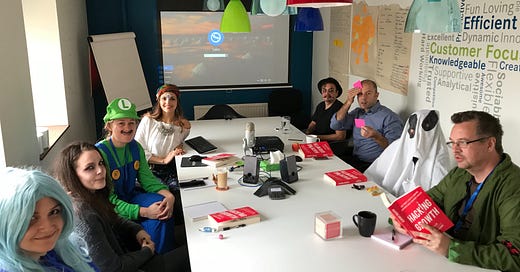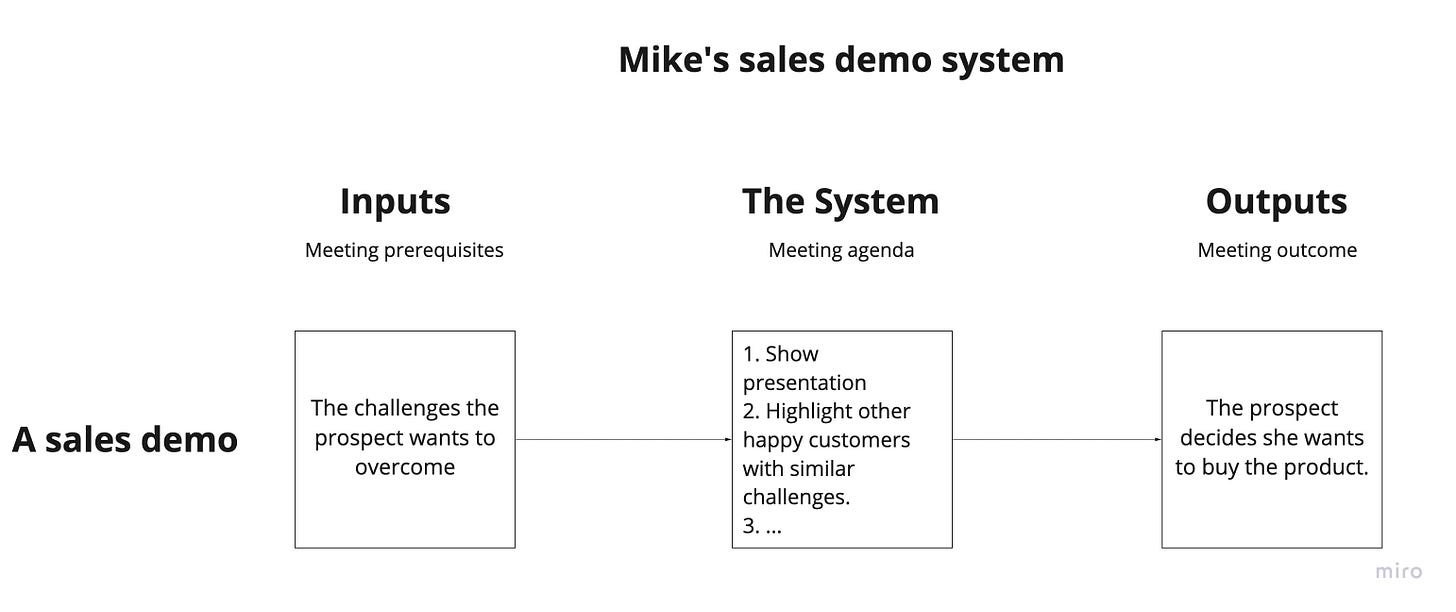If you know me well, you'll know that I hate meetings.
Erm, well, that's not entirely true – what I really hate are unstructured meetings.
They're expensive, inefficient, and they're riddled with cognitive biases. Unstructured meetings lead to consensus-building which leads to confirmation bias which leads to groupthink.
Confirmation bias is the tendency of people to favour information that confirms their existing beliefs or hypotheses.
Groupthink is when the desire for group consensus overrides people's common sense desire to present alternatives, critique a position, or express an unpopular opinion.
We've all been in one. It feels good in the moment – "woohoo everyone agrees!" – but what it's really doing is killing innovation and producing weak decisions.
Often the outcome you were hoping to achieve gets completely forgotten. And all you've really done is helped a group of people succumb to their human biases and agree with each other.
A meeting with 8 people for 1 hour discussing a solution at $200 per person per hour costs the company $1600. Let alone opportunity costs!
Did the meeting produce an outcome worth $1600? Or could one person have spent one hour thinking about a solution, documenting it, and owning it at a cost of just $200?
Seek feedback, not consensus
I feel so strongly about consensus, that I made “seek feedback, not consensus”, one of Sendible’s operating principles:
Seek feedback, not consensus
At Sendible, you are given the chance to own things and fail gracefully or succeed spectacularly. Instead of seeking consensus, you put your ideas forward with confidence and use feedback from colleagues and customers to guide your decisions.
I also reinforced it in the set of Meeting Guidelines I created. At one point, I felt so strongly about inefficient meetings, I printed off the entire list of guidelines and stuck them to our boardroom door! 🤦♂️
📕 Here’s a link to the Meeting Guidelines, if you’d like to take a look.
A meeting is a system
At its core, a meeting is a system. Sure, it's probably the most expensive, most inefficient system we have for arriving at a decision or outcome.
But the good news is, like all systems, meetings can be optimised.
And if you love problem-solving, A/B testing, and experimentation, meetings are a fantastic playground for developing skills in systems thinking.
Below is a simple example showing how Mike, a fictitious sales executive, might use systems thinking to optimise his meetings with prospects:
Mike has defined the inputs (meeting prerequisites) as well as the desired outputs that a successful meeting will deliver (meeting outcomes). Next, he focuses on optimising his system (the meeting agenda and execution).
With each subsequent sales demo he runs, he experiments by making small tweaks to his system and measuring the results.
Having used a systems-based approach for all the structured meetings I've run for the last few years, whether internally or externally, I thought I'd share the templates I use for you to download:
📝 My meeting notes template
Before I schedule a meeting or before I attend one, I make a copy of this template in my notes app (usually, either Bear or Notion) and fill in each section. I also add to it during the meeting and use it to ensure we stay on track.
🗓 My meeting agenda template
If I’m scheduling a meeting, I’ll use this template to fill out the agenda and include it as part of the meeting invite. It ensures that all attendees know exactly what a successful outcome looks like and how the agenda will drive us towards it.
If you have any tips of your own on how to run meetings more effectively, I’d love to hear from you! I’m always looking to improve. 🙏
– GH
P.S. If you're ever looking for tried-and-tested, structured meeting templates that steer away from consensus, check out Atlassian's Team Plays. I refer back to these often!





